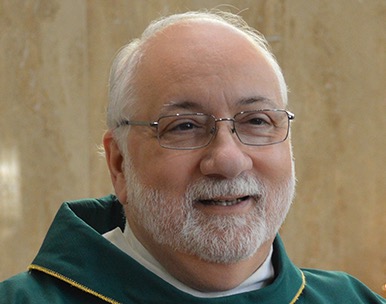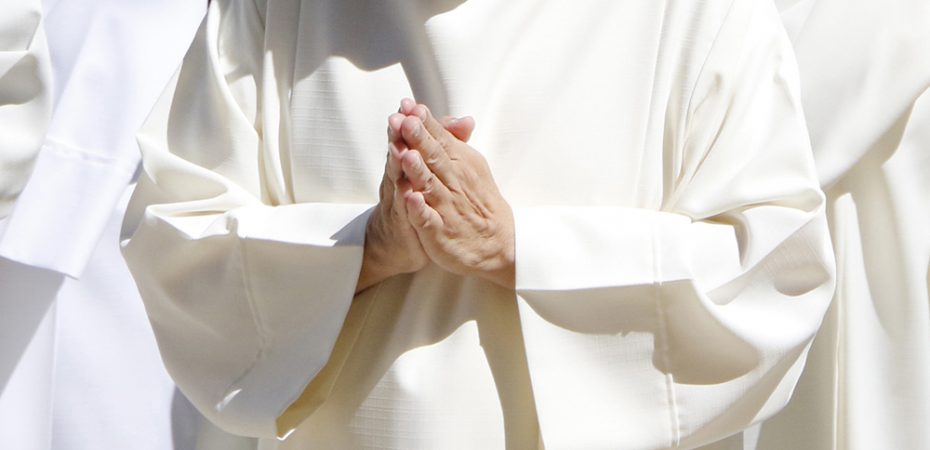The Lone Deacon: Toward a Less-Effective Ministry
Teamwork is almost always more successful than going it alone
Deacon Dominic Cerrato Comments Off on The Lone Deacon: Toward a Less-Effective Ministry
 Some of us are old enough to remember the television show “The Lone Ranger.” That program, preceded by a long-running radio show, aired from 1949-57 and starred Clayton Moore and Jay Silverheels. Of course, unlike some of you, I saw it in reruns.
Some of us are old enough to remember the television show “The Lone Ranger.” That program, preceded by a long-running radio show, aired from 1949-57 and starred Clayton Moore and Jay Silverheels. Of course, unlike some of you, I saw it in reruns.
The Lone Ranger is a fictional character who fought outlaws in the Old West. He rode a magnificent white stallion named Silver and was always accompanied by Tonto, his faithful companion. Beyond wearing a facemask, the odd thing about the Lone Ranger is, apart from Tonto, he worked alone, no longer with his brother rangers.
The actual Texas Rangers were established in the early 19th century as an organized unit to protect settlers in the southwest following the Mexican War of Independence. Critical to their identity is the team concept of law enforcement, virtually unknown at that time. So, properly understood, a ranger wasn’t a ranger, unless he belonged to the Rangers.
In this respect, the Lone Ranger, as a concept, is rather strange, and even contradictory. He still identified with the larger group, and yet he was not part of them as he battled his archnemesis, Butch Cavendish. At the end of each episode, after catching the outlaws, the Lone Ranger would slip away and someone would ask, “Who was that masked man?” In response, another would exclaim, “Why, that’s the Lone Ranger!” Then, rearing his horse, the Lone Ranger would cry out, “Hi-Yo Silver and away!” as he rode off into the sunset to the tune of the “William Tell” Overture.
Of course, this is only fiction and, while the Lone Ranger was quite successful on television much to the fascination of his viewers, in reality, teamwork is almost always more successful than going it alone. Man is, by his very nature, a social being. Pope St. John Paul II would say, “To be (to exist) is to be with, and for, another.” This is precisely why the Texas Rangers, as a law enforcement body, was so successful. They worked together leveraging their strengths and diminishing their weaknesses to protect the common good.
As nostalgic as all this sounds, there’s a certain parallel in the diaconate, what I call, the “Lone Deacon.” You know what I mean because you’ve all met them. These are deacons who choose to separate themselves from their brother deacons as they exercise ministry. They see no point in attending diocesan events, ongoing formation, even funerals of deacons who precede them in death. The parish is their territory, and anything else is simply a distraction in their all-too-busy life. I’m not talking here of deacons who are physically separated from their brothers by distance or those infirm. I’m referring to those who, let’s be honest, don’t give a fig about the diaconate beyond their assigned ministry. After ordination, they simply got on their high horse, reared back and said to the rest of us, “Hi-Yo Silver and away!”
This may sound rather harsh, and I certainly don’t mean to be uncharitable, but these men were ordained into an order. They have an ecclesial responsibility beyond their assignments, and their obligation to serve extends to their brothers who reflect Christ the Servant. Understood this way, we arrive at an unavoidable conclusion, one that should shake us to our core; to deliberately avoid our brother deacons is to deliberately avoid Christ himself (cf. Mt 25:45).
While there are lone deacons in our number, if truth be known, we can all have lone deacon moments where we fail to connect with our brothers. To be sure, this is no easy task as we’re all very busy. Still, the call of our diaconate enrolls us in a sacred order rooted in our configuration to Christ the Servant. Because of this, we should make every effort to enter into that community to the best of our ability. In this way, we more effectively fulfill our vocation, and Christ the Servant is witnessed to a world in desperate need of his saving presence.
DEACON DOMINIC CERRATO, Ph.D., is editor of The Deacon and director of diaconal formation for the Diocese of Joliet, Illinois. He is the founder of Diaconal Ministries, where he gives national presentations and retreats to deacons and diaconal candidates. Follow him on Facebook to continue the conversation.





